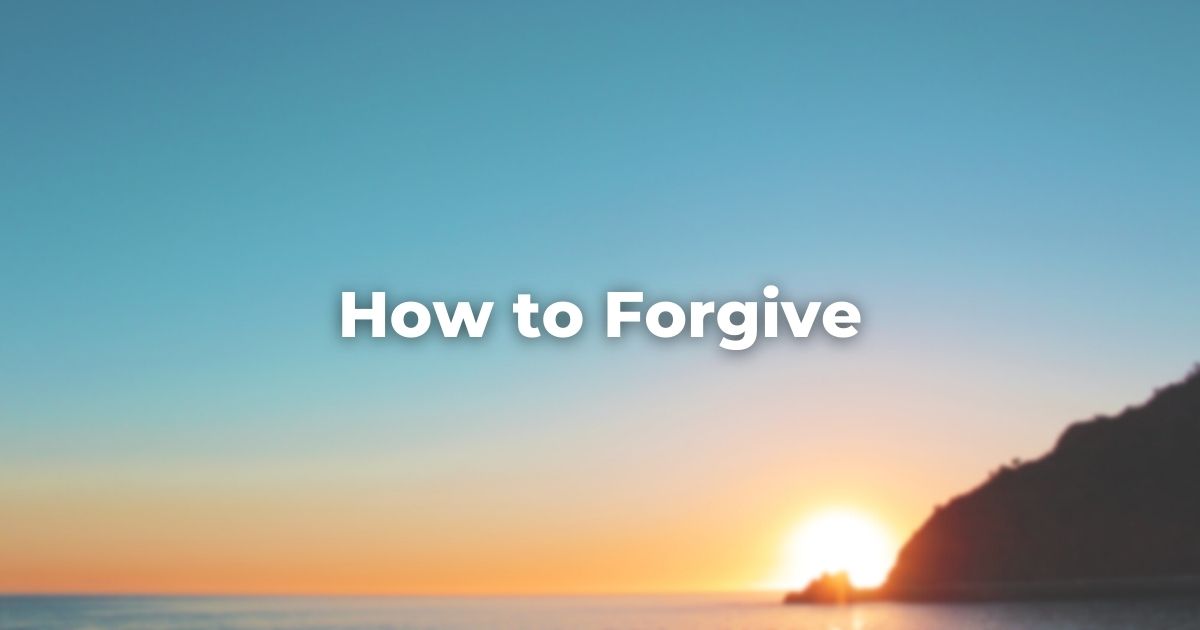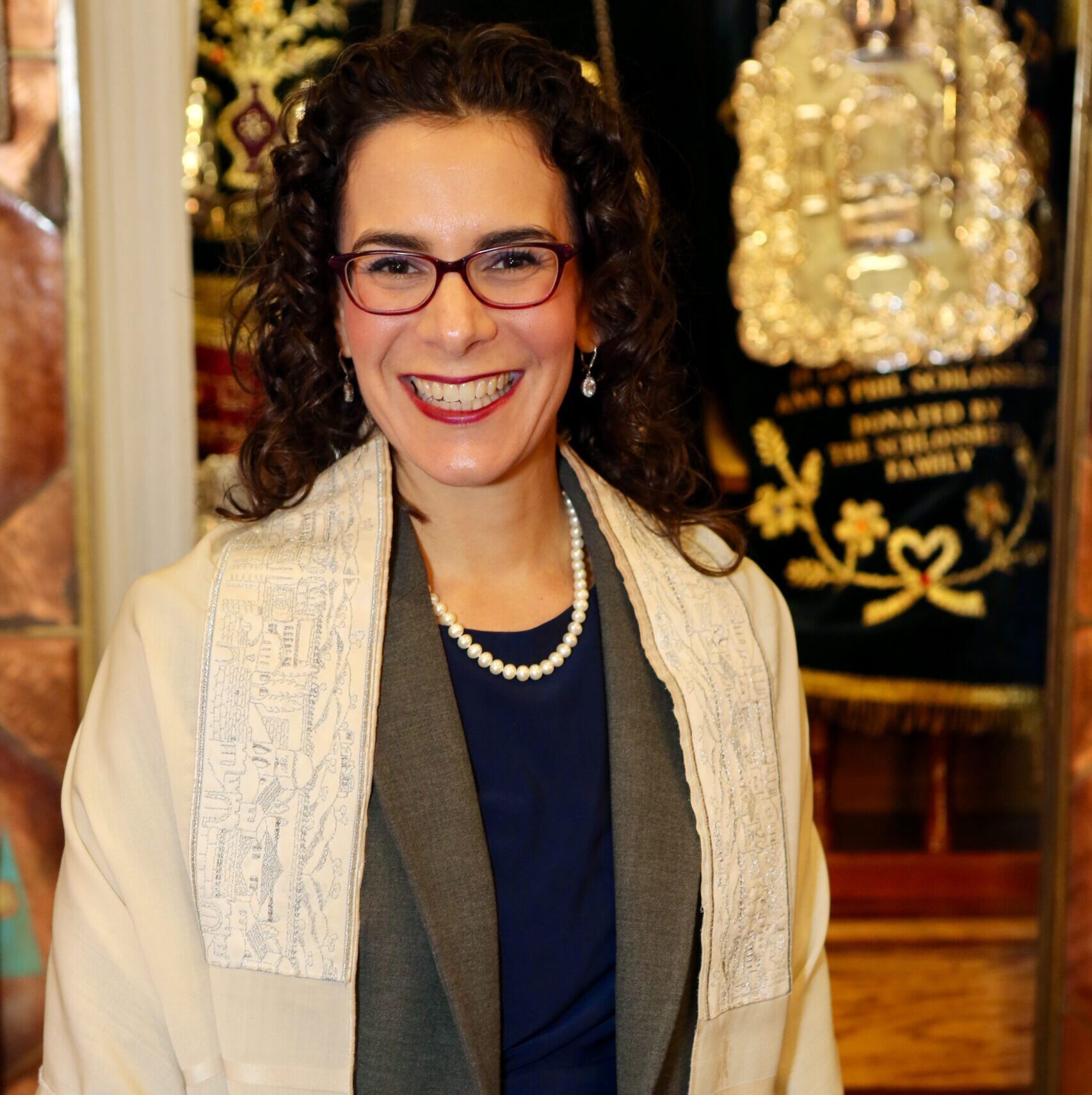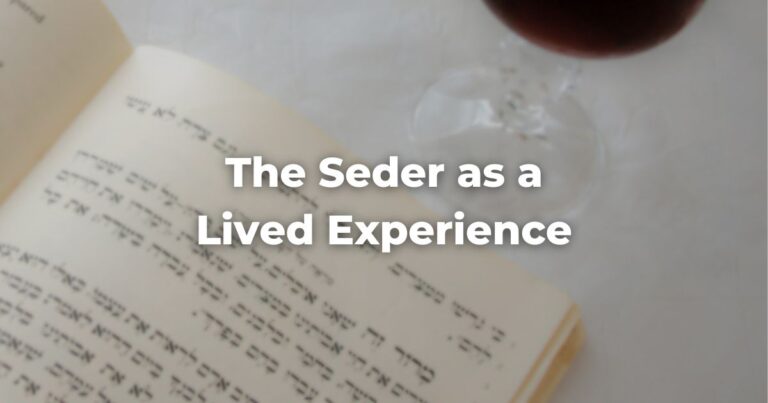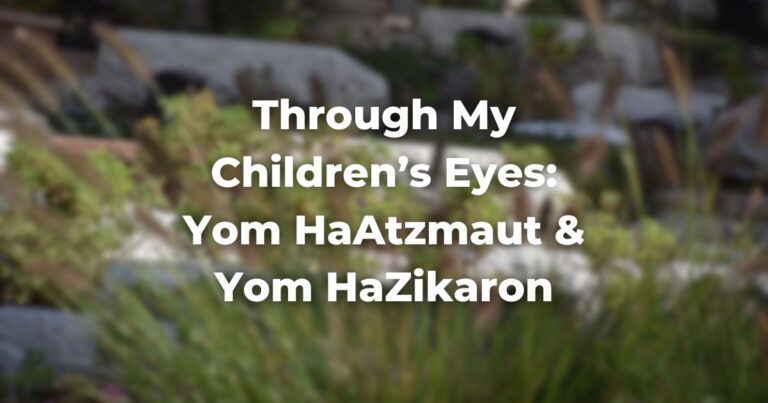(Adapted from Rabbi Friedson’s 5784 Kol Nidrei sermon.)
As David sat on the side of the road in the Dakota plains, waiting for his next ride, he wrote:
Dear Mom,
If Dad will permit it I would like to come home. I know there’s little chance he will. I’m not going to kid myself. I remember he said once, if I ever ran off, I might as well keep going.
All I can say is that I felt like leaving home was something I had to do. I wanted to find out more about life and about me, and the best way for us (life and me) to live with each other.
You won’t be able to reach me by mail, because I don’t know where I will be next. But in a few days I hope to be passing our place. If there’s any chance Dad will have me back, please ask him to tie a white cloth to the apple tree in the south pasture. I’ll be passing by on the train. If there’s no cloth on the tree, I’ll just quietly, and without any hard feelings toward Dad, keep going.
Love,
David
Based on “Somebody’s Son” by Richard Pindell, Rewritten by Dr. Daniel Rose
The next day, as the truck that had picked David up soon after finishing his letter pulled into a small town in Iowa, David mailed the letter with a knot in his stomach.
******
I’ll continue the story at the end.
Yom Kippur is the Day of Atonement, when God forgives our wrongdoings and wipes the slate clean.
In Judaism, there are three main types of wrongdoing and three main types of forgiveness. This nuanced approach helps us more deeply understand the inner work of teshuva and forgiveness done on this sacred day. The three types of wrongdoing are Chet (חטא), Pesha (פשע) and Avon (עון).
Chet (חטא) is something done by accident for which you are sorry.
Pesha (פשע) is something done on purpose, perhaps maliciously, like taking revenge or stealing.
Avon (עון) is something done because you lost your temper or had no impulse control. Avon (עון) is an error, an unintentional act, that nevertheless has harmful consequences.
We hear these three types of wrongdoings in the 13 Attributes [sing: noseh avon, va’pesha, v’chataah].
There are three distinct types of forgiveness as well. The ethical book Tomer Devorah describes “selicha,” “mechila,” and “kapparah.” These three words appear in the the Al Chet prayer when we ask God, “s’lach lanu, machal lanu, kapper lanu” meaning “forgive us, pardon us, and grant us atonement.”
Rabbi David Blumenthal describes s’licha, forgiveness: He writes, “It is an act of the heart. It is reaching a deeper understanding of the sinner. It is achieving an empathy for the troubledness of the other. Selicha is not a reconciliation or an embracing of the offender; it is simply reaching the conclusion that the offender, too, is human, frail, and deserving of sympathy.”
Mechila, pardon, is “forgoing the other’s indebtedness.” According to Rabbi Blumenthal, “If the offender has done teshuva and is sincere in his or her repentance, the offended person should offer mechila; that is, the offended person should forgo the debt of the offender, relinquish his or her claim against the offender. This is not a reconciliation of heart or an embracing of the offender; it is simply reaching the conclusion that the offender no longer owes me anything for whatever it was that he or she did. Mechila is like a pardon granted to a criminal by the modern state. The crime remains; only the debt is forgiven.”
Atonement, the third kind of forgiveness is “A total wiping away of all sinfulness,” according to Rabbi Blumenthal. It is an existential cleansing. Kappara is the ultimate form of forgiveness, but it is only granted by God. No human can “atone” the sin of another; no human can “purify” the spiritual pollution of another.
On Yom Kippur, we gather together praying for God’s forgiveness. We tap our hearts as we list wrongdoings. The message of the holidays is people can change. We can change. Judaism believes in second, third, even 100th and 1,000th chances.
One of the foundational teachings about Yom Kippur is found in the Mishnah where we read: “For transgressions between a person and God, Yom Kippur atones, for transgressions against one’s neighbor, Yom Kippur cannot atone, until one appeases one’s neighbor.”
The MishnahA collection of rabbinic teachings edited in Israel around 225 CE. Organized in six sedaraim by subject matter and dealing with both ritual and civil law. Both the Jerusalem and Babylonian Talmud are expansive discussions of the Mishnah. Read more teaches that Yom Kippur gives us an opportunity to ask for forgiveness—and also an opportunity to forgive. I’ve spoken and taught extensively about seeking forgiveness. Tonight we’ll take a closer look at the other side—how to forgive.
Full disclosure—in preparation for writing this, I came across an online quiz called, “How Forgiving Are You” from the Greater Good Science Center at UC Berkeley. It was out of 60 points. I asked my daughters how well they thought I did on it.
Bless them, they said they thought I got 59 or 60 points. I failed the quiz. 27 out of 60 points. In fairness, I was thinking about someone who had hurt me deeply and never taken responsibility for the harm they caused. I was angry when I took the quiz. Still, this may have been the only test I’ve ever failed in my life.
It may be the most important. I’m not alone in struggling to forgive.
The philosopher Nietzche said, “It is much more agreeable to offend and later ask forgiveness than to be offended and grant forgiveness.”
We struggle to forgive, but God yearns to forgive us. Rabbi Alan Lew wrote, “Forgiveness—the desire of God to forgive us—is an irresistible force. It fills every space like the waters of a flood. It is one of the most powerful forces on earth, nothing less than the need of the world to be what it is; the need of the universe to have us be what we are. That’s why we were created: to be the way we are and not some other way. It is precisely the way we are that is sacred in the first place.
“And it is the nature of God to forgive. This God tells the angels in heaven, and this God tells Moses firsthand in the famous passage from the TorahRefers to the first five books of the Hebrew Bible, the Tanakh, also called the Five Books of Moses, Pentateuch or the Hebrew equivalent, Humash. This is also called the Written Torah. The term may also refer to teachings that expound on Jewish tradition. Read more that is embedded in the High Holiday liturgy: “Show me what you are like,” Moses pleads with God, and God complies.
“My Name is Y-H-V-H. Y-H-V-H. I am gracious and compassionate. I am forgiveness itself.” We repeat this phrase multiple times during Yom Kippur services, reminding God and ourselves that God forgives. We too must forgive.”
Forgiving is sacred work.
As Jews, we are instructed to “walk in God’s ways.” God forgives, so we too must seek to forgive. In Jewish tradition, a person does not have to forgive. The person who committed the wrongdoing is to take responsibility, make amends, and apologize for their wrongdoing. The person wronged can choose to forgive or not.
After requesting forgiveness three times, the wrongdoer is absolved of responsibility, regardless of whether or not forgiveness was granted.
However, Maimonides taught that we should be willing to forgive those who ask for it. He wrote in Mishneh Torah, Repentance 2:10, “It is forbidden for man to be ill-natured and unforgiving, for he must be easily appeased but unwieldy to wrath; and when a sinner implores him for pardon, he should grant him pardon wholeheartedly and soulfully. Even if one persecuted him and sinned against him exceedingly he should not be vengeful and grudge-bearing.”
If only it were that easy!
If only everyone who did us wrong took responsibility, made amends, and made a sincere commitment to change. In my experience, more frequently we are harmed by others who never do teshuva, who never apologize, or make amends.
What do we do then?
You may have heard the adage, “holding onto a grudge is like drinking poison and expecting the other person to die.” Even if we were wronged, our anger and resentment eventually become heavy burdens.
There is a nascent field of study focused on forgiveness.
One of the lead researchers, Dr. Fred Luskin, teaches:
“I’ve been teaching forgiveness for more than a decade, and the simple definition of forgiveness that I work with now is that it’s the ability to make peace with the word ‘no.’
“People have come to me with a whole host of problems, and the essence of all of them is: I didn’t get something I wanted. I got ‘no.’ I wanted my partner to be faithful; they weren’t faithful. I got ‘no.’ I wanted somebody to tell the truth; they told a lie. I got ‘no.’ I wanted to be loved as a child; I wasn‘t loved in a way that I felt good about. I got ‘no.’
“It’s so important to be able to understand the universal experience of this—of objecting to the way life is and trying to substitute the way you want it to be, then getting upset when your substitution doesn’t take.
“The essence of forgiveness is being resilient when things don’t go the way you want—to be at peace with ‘no,’ be at peace with what is, be at peace with the vulnerability inherent in human life. Then you have to move forward and live your life without prejudice.”
What is Forgiveness?
Rabbi Harold Kushner wrote, in Overcoming Life’s Disappointments, “Forgiveness is not a matter of exonerating people who have hurt you. They may not deserve exoneration. Forgiveness means cleansing your soul of the bitterness of ‘what might have been,’ ‘what should have been,’ and ‘what didn’t have to happen.’ Someone has defined forgiveness as ‘giving up all hope of having had a better past.’ What’s past is past and there is little to be gained by dwelling on it. There are perhaps no sadder people than the men and women who have a grievance against the world because of something that happened years ago and have let that memory sour their view of life ever since.”
According to Dr. Luskin, forgiveness provides a feeling of peace. It is a way for the offended person to take back their power and heal. Forgiveness is not condoning the other person’s unkindness or wrongdoing. It doesn’t excuse bad behavior or pretend a hurt did not occur. It doesn’t necessarily mean reconciliation and it isn’t “forgive and forget.”
He writes, “What is forgiveness? Forgiveness means that you become part of the solution. Forgiveness is the understanding that hurt is a normal part of life. Forgiveness is for you and no one else. You can forgive and rejoin a relationship or forgive and never speak to that person again.”
Remember, Judaism does not require forgiveness.
Where a person has done sincere teshuva, we are encouraged to forgive. There is no obligation.
Dr. Luskin shares the following story, “I once had a woman come into a workshop of mine, very early in my experience teaching forgiveness, and say, ‘I need to forgive the fact that somebody murdered my son.’ I didn’t know what to say. I hadn’t done work with families of murder victims yet, and so the only thing I could ask was, ‘When did it happen?’ And she replied, ‘A month ago.’ I said, ‘Go home. This is not what you need now. Come back in two years. Come back after you’ve done the unimaginably hard work of grieving that loss, then forgive it.'”
The Stanford University Forgiveness Projects have found extensive health benefits resulting from learning how to forgive. Their research led to nine steps to forgiveness that help people deal with past injustices and move forward.
- Know exactly how you feel about what happened and be able to articulate what about the situation is not OK. Then, tell a couple of trusted people about your experience.
- Make a commitment to yourself to feel better. Forgiveness is for you and no one else.
- Forgiveness does not necessarily mean reconciling with the person who upset you or condoning the action. In forgiveness, you seek the peace and understanding that come from blaming people less after they offend you and taking those offenses less personally.
- Get the right perspective on what is happening. Recognize that your primary distress is coming from the hurt feelings, thoughts, and physical upset you are suffering now, not from what offended you or hurt you two minutes—or 10 years—ago.
- At the moment you feel upset, practice stress management to soothe your body’s fight or flight response.
- Give up expecting things from your life or from other people that they do not choose to give you. Remind yourself that you can hope for health, love, friendship, and prosperity, and work hard to get them. However, these are “unenforceable rules”: You will suffer when you demand that these things occur since you do not have the power to make them happen.
- Put your energy into looking for another way to get your positive goals met than through the experience that has hurt you.
- Remember that a life well-lived is your best revenge. Instead of focusing on your wounded feelings, and thereby giving power over you to the person who caused you pain, learn to look for the love, beauty, and kindness around you. Put more energy into appreciating what you have rather than attending to what you do not have.
- Amend the way you look at your past so you remind yourself of your heroic choice to forgive.
In addition to Yom Kippur and the Days of Awe, Judaism includes a daily forgiveness ritual.
Traditionally, the Shema is recited each evening at bedtime. It’s not simply the recitation of the Shema and v’Ahavta. The ritual begins with forgiveness. One says, “Ribono Shel Olam, I now forgive whoever has provoked my anger or annoyance, whoever has done wrong to me, whether to my body or my spirit, or to my honor, or to all that may belong to me, whether willingly, or inadvertently, or by design, whether by speech or deed—let no one suffer punishment on my account.”
You may not be ready to forgive, yet. That’s ok. My colleague Rabbi Jill Zimmerman wrote a Prayer for Those Not Ready to Forgive. In it she writes,
Amidst the urgent pleadings of these days,
to wipe the slate clean and start anew,
some of us are not sure of the path forward.
To the woman who has been violated
and to the man whose spirit has been beaten down,
And to anyone with a broken heart or a crushed soul
who might not be quite ready to forgive:
It’s ok.
Take your time.
Sometimes the timetable of these holy days
doesn’t match the rhythm of your heart and soul.
…
Forgive yourself for not being ready – yet.
Give yourself the time and space
to go at your own pace,
to love yourself right where you are and as you are.
From that place of acceptance,
May you have faith that the path forward will open up.
Let’s finish David’s story
******
Finally, as David ascended the passenger train that would be the last leg of his journey homeward, the knot returned and firmly lodged itself in his core. He could hardly bring himself to imagine the apple tree in the pasture of his childhood home, for fear it would be missing the white cloth, even in his imagination.
As he sat down next to the window that would deliver his fate, an elderly gentleman sat in the seat beside him. As day turned to night, and once again back to day, the travel companion shared their stories. As Jonathan regaled stories of the West Coast, Canada and even Mexico, he realized that in just a short while the train tracks would take a gentle bend to the right, and there would be the farm on which he grew up, with its south facing pasture, and the old apple tree on which as a child he would climb. He couldn’t look. He was too afraid the cloth would not be there—too afraid he would find, staring back at him, just another tree, just another field, and turned quickly away.
Desperately, he nudged his travel companion beside him. “Mister, will you do me a favor? Around this bend on the right, you’ll see an apple tree. I wonder if you’ll tell me if you see a white cloth tied to one of its branches?”
“Son,” the man said in a voice slow with wonder, “I see a white cloth tied on almost every twig.”
May you have the strength and courage to seek forgiveness and to forgive.
G’mar Chatima Tova. Wishing you a meaningful Yom Kippur.
Author
-

Rabbi Sarah Freidson serves the spiritual, religious, educational, and pastoral needs of Temple Beth Shalom in Mahopac, NY. She believes in the transformative power of relationships. A gifted teacher and storyteller, she enjoys making Jewish learning accessible to individuals of all backgrounds, levels, and interests. She hopes to use her enthusiasm, skills, and talents to strengthen the Jewish community and to help people live better, holier lives through Torah and Jewish teachings.
View all posts






